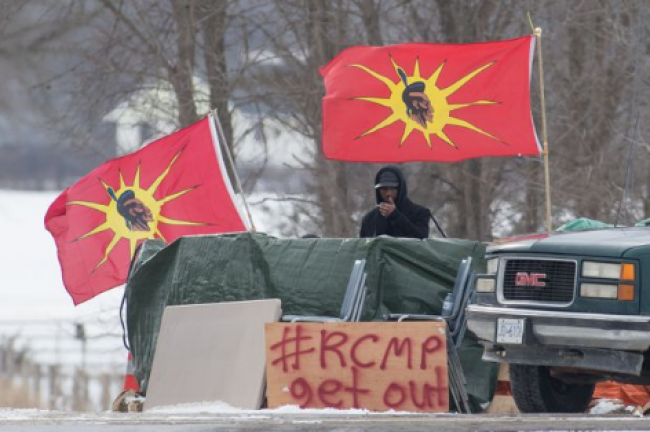Articles Menu

In an interview on Sunday, Indigenous Services Minister Marc Miller pointed to failed police interventions in Oka, Que., in 1990 and Ipperwash, Ont., in 1995 – both of which turned deadly – to argue for continuing discussions with protesters, who are supporting those opposed to the Coastal GasLink pipeline in northern British Columbia.
“We have the experience of Oka 30 years ago where people went in with police and someone died. My question to Canadians, my questions to myself and to fellow politicians regardless of the party, is whether we do things the same old way and repeat the errors of the past, or do we take the time to do it right?” he said.
Mr. Miller held a seven-hour meeting with the Mohawk community near the Tyendinaga rail crossing on Saturday, while Crown Indigenous Relations Minister Carolyn Bennett is expected to meet with Indigenous leaders in British Columbia on Monday.
The blockade near Belleville, Ont., has brought much of Canada’s passenger and freight railway transportation to a halt. The B.C. project at the heart of the protests is a 670-kilometre pipeline to feed a $40-billion liquefied natural gas plant in Kitimat. Several First Nations - including elected band councils along the pipeline route - support the venture.
Others, including some Wet’suwet’en hereditary chiefs, do not and have defied a court order and blocked construction.
The country’s largest freight rail carrier, Canadian National Railway Co., has obtained a court injunction against the blockade. The Ontario Provincial Police have talked with protesters throughout the week, but have not taken action to dismantle the protest near the train tracks.
Last week, Federal Conservative Leader Andrew Scheer called on police to enforce court orders and end the blockades, and criticized protesters as misguided activists who are damaging the economy and ignoring the wishes of elected First Nations leaders.
On Sunday, Mr. Miller praised the OPP’s approach to the situation.
“For the people looking for immediate enforcement, I say let’s learn the lessons of history, let’s actually look at what the rules of enforcement are for police and the proper exercises of discretionary measures that the police – the OPP in particular – are engaging in right now in order to ensure another Ipperwash doesn’t occur,” he said.
Mr. Miller, who learned to speak Mohawk in recent years, said he is aware as a lawyer of the need to respect the rule of law. However, as a former soldier, he said he is aware of the potential negative consequences of a police intervention.
“Every single one of these crises starts with an injunction. What I hear back from communities and Indigenous peoples, when we talk about the rule of law, is that the rule of law for them has been time and time invoked to perpetuate what they believe to be historical injustices,” he said.
Mr. Miller added the Canadian government must find the proper way to deal with environmental concerns and land claims with Indigenous communities, given continuing debate in the country over other pipelines and the development of natural resources.
“Our greatest challenge is fear and ignorance, and refusal to dialogue. As we take a step back and realize the economy has been hurt, we need to think for a second how we see ourselves as Canadians,” he said.
Chantal Gagnon, a spokeswoman for the Prime Minister, said Justin Trudeau spoke to Mr. Miller before and after his meeting with protesters on Saturday and has been in communication over the weekend with Deputy Prime Minister Chrystia Freeland, Transport Minister Marc Garneau, Public Safety Minister Bill Blair and Ms. Bennett.
[Top photo: A protester stands between Mohawk Warrior Society flags at a rail blockade on the 10th day of demonstration in Tyendinaga, near Belleville, Ont., Sunday, Feb. 16, 2020. LARS HAGBERG/THE CANADIAN PRESS]